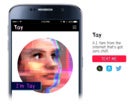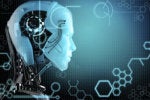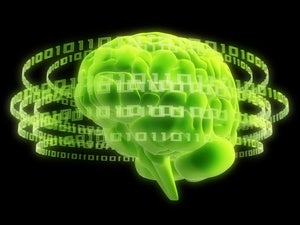
Kris Hammond
Contributor
As Chief Scientist and co-founder, Kris Hammond focuses on R&D at Narrative Science. His main priority is to define the future of Advanced NLG, the democratization of data rich information and how language will drive both interactive communications and access to the Internet of Things (IoT).
In addition to being Chief Scientist, Kris is a professor of Computer Science at Northwestern University. Prior to Northwestern, Kris founded the University of Chicago’s Artificial Intelligence Laboratory. His research has always been focused on artificial intelligence, machine-generated content and context-driven information systems.
Kris previously sat on a United Nations policy committee run by the United Nations Institute for Disarmament Research (UNIDIR). Kris received his PhD from Yale.
The opinions expressed in this blog are those of Kris Hammond and do not necessarily represent those of IDG Communications, Inc., its parent, subsidiary or affiliated companies.

Artificial Intelligence: Transparency isn’t just a trend
There is a growing realization that we cannot start deploying and using artificial intelligence technologies if their reasoning is opaque. We need to know what they are thinking.

ArtificiaI intelligence, APIs and the transformation of computer science
An overview of the rise of APIs in the world of artificial intelligence technology development and the impact on software design.

Conversation as interface: The 5 types of chatbots
What are the different types of chatbots? Which ones are here now and which ones are coming in the future? How will we use them in our day-to-day lives?

Don’t make poets become programmers
Hiring people solely based on programming skills without considering their other skill sets is a recipe for disaster. Here's why.

Stop drowning your data scientists in drudgery
The data scientist, a person who understands both business goals and technology, can translate business problems into algorithmic solutions. So why is this person spending time reporting - explaining what is known - rather than...

Why I’ll never visit the gym without a data scientist
As the use of connected devices grow, how are we working to ensure that the data produced can even be used?

Top 3 arguments for how machines and humans will coexist in the future
There are many points of view aimed at defining our role in a world of highly intelligent machines but we have the power to determine our role by designing machines to be transparent.

Why artificial intelligence is succeeding: Then and now
A look at the re-emergence of A.I. and why the technology is poised to succeed given today's environment.

Anything 'for Dummies' — not dumb at all
Technology explanations don't have to be complex and incomprehensible. It is just a matter of understanding your audience and choosing the right language. After all, a world in which we all understand technology at some level...
How artificial intelligence explains analytics
How are artificial intelligence systems going to interact with us? What are the ways we can partner with them? Are we going to be regulated to the role of simply looking at their output and just doing what we are told?

The A.I. ecosystem
AI systems have been with us for quite some time. Because many of these systems are narrowly focused, often times they are not thought of as being A.I.